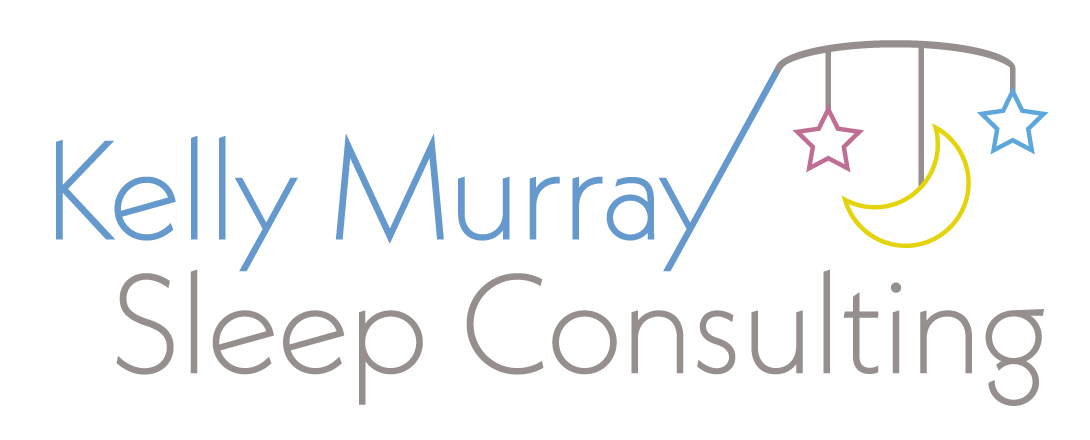Why the Dream Feed Doesn’t Work
By Jade LiManni, MASTER Baby and Toddler Sleep Consultant
Let’s talk about the dream feed.
Chances are you've heard about the dream feed as a promising solution to help your baby sleep longer at night. As a pediatric sleep consultant and mom, I totally get how desperately you want to find anything that will buy you more precious hours of uninterrupted sleep. But here’s why the dream feed might not be the golden ticket to the land of Z's that you've been hoping for.
First of all, let me be clear, I am not here to rain on anyone's parade or tell you that the dream feed is a terrible idea. It works for some families (which is great!), but as someone who has supported numerous families through their sleep journey, I want to shed some light on why the dream feed may not be the magical solution it's often hailed to be.
What Is a Dream Feed?
A dream feed typically involves quietly picking up your sleeping baby, feeding them, and then placing them back in their crib – all without fully waking them. This is usually around the time the parent would naturally be going to sleep, somewhere between 9:00 and 11:00 pm. The idea is that, by topping off your baby's tummy with a late night feed, you might encourage them to sleep for a longer stretch before needing another feed for the night.
Sounds promising, right?
Well, let's dig a little deeper…
Deep Sleep Disruption
One of the main reasons the dream feed might not work as well as we hope is that it can disrupt the deepest phases of your baby's sleep. Once they reach four months of age, babies, like adults, cycle through different stages of sleep, including light sleep and deep sleep.
Deep sleep phases are incredibly important for babies’ rest and development. When we disrupt these phases, it can lead to more frequent wakings and result in a harder time settling back to sleep. We spend the majority of our deep phases of sleep prior to midnight.
Imagine you're in the deepest, most rejuvenating sleep of the night — and suddenly someone wakes you gently for a snack.
You might be disoriented and it could take a little while to drift back into that deep sleep again. This is similar to what can happen for babies during a dream feed. By interrupting their deep sleep, we might unintentionally encourage more fragmented sleep patterns.
Hunger Cue Confusion
Another factor to consider is that the dream feed can interfere with your baby's natural hunger cues and potential self soothing skills.
Think about it. If your baby is used to having a late night feed while they're still mostly asleep, they might start relying on that feed to help them fall back asleep whenever they rouse slightly during the night. Instead of learning to self soothe and link their sleep cycles independently, they might come to expect a feed as part of their routine waking moments.
As parents, we know how important it is to help our babies develop healthy sleep associations and understand their own hunger and fullness cues. By encouraging babies to naturally wake when they're hungry and learn to self soothe back to sleep without relying on external props, we can set the stage for more independent and restful sleep in the long run.
What I Recommend Instead of the Dream Feed
Adequate Nutrition During the Day
First and foremost, it's important to ensure that your baby is getting plenty of quality nutrition during the day. If your baby is young, under six months of age, and still needs a night feed or two, it's completely normal and healthy for them to wake for these feeds.
I often encourage parents to observe their baby's hunger cues and allow them to naturally wake for nighttime feeds. By doing so, we honor their innate ability to regulate their hunger and fullness, and we help them establish a healthy relationship with food and sleep.
Cue Sleep with a Calming Bedtime Routine
Additionally, I'm a big advocate for creating a soothing and consistent bedtime routine that signals to your baby that it's time to sleep. This might include activities like a warm bath, gentle massage, reading a book, or singing a lullaby. By setting the stage for restful sleep through a calming bedtime routine, you can help your baby ease into sleep more peacefully.
Ensure a Sleep-Promoting Environment
Another key aspect of promoting restful sleep for your baby is to create a sleep conducive environment. This means aiming for a cool, dark, and quiet sleep space that encourages deep uninterrupted sleep. You might consider a white noise machine, blackout curtains, or a comfortable sleep surface to enhance your baby's sleeping environment.
Practice Patience
Above all, be patient with yourself and your baby as you navigate the winding road of sleep. Every baby is unique, and what works for one might not work for another. While the dream feed may seem like a tempting option to help your baby sleep longer stretches at night, it's essential to consider the potential drawbacks it might introduce. By prioritizing the deepest phases of your baby's sleep, allowing them to wake naturally, and helping them develop healthy sleep associations and hunger cues, you can set the stage for more restful and independent sleep in the long run.
Wishing you all the best on your sleep journey, fellow parents.
You've got this.
We Are Here to Help!
Remember, it's okay to seek support and guidance when you're feeling overwhelmed and it's okay to adjust your approach as you learn more about your baby's sleep patterns and needs. Reach out to a pediatric sleep consultant. We would love to help you.
If you need further assistance with your child’s sleep, feel free to set up a complimentary discovery call with one of our team on the Kelly Murray Sleep Squad.
We would love to chat with you more about other options for your baby and how we can help get you and your child better nights sleep.
All team members have completed training with Kelly and have learned the Murray Method. Kelly continues to support, guide and oversee the Sleep Squad as they work with the families who trust in us. This way, all clients are able to experience the same amazing results (and lots and lots of sleep).
Sweet Dreams…
Kelly Murray is a certified sleep coach and an award-winning pediatric sleep consultant based in Chicago offering sleep coaching services nationwide.

















